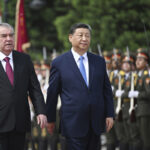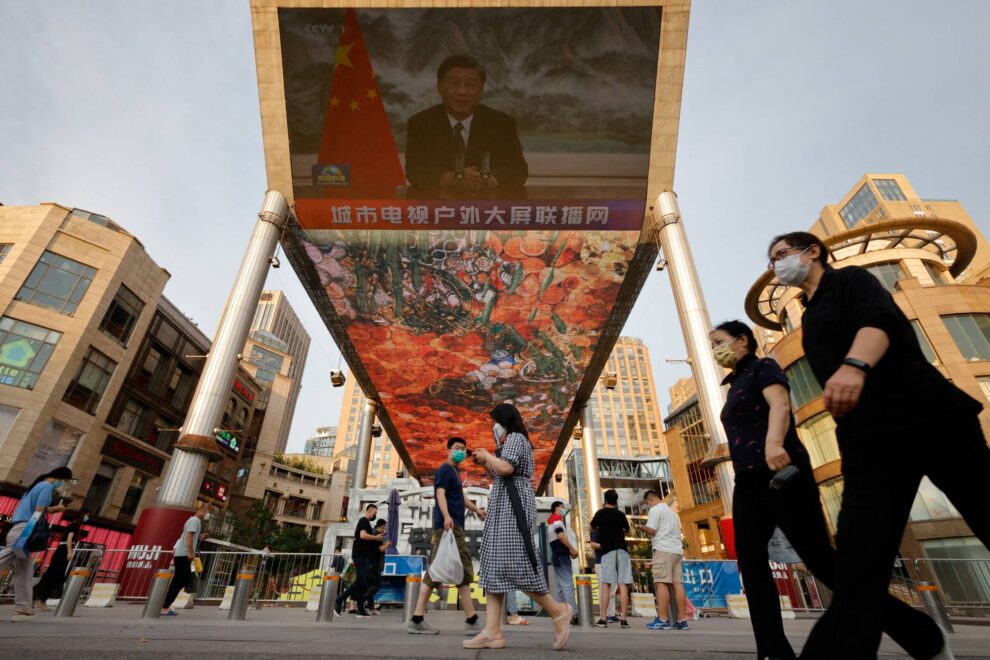On the occasion of the 15th BRICS Leaders Summit in Johannesburg this week, the current members—Brazil, Russia, India, China and South Africa—invited Argentina, Egypt, Ethiopia, Iran, Saudi Arabia and the United Arab Emirates to join the bloc early next year. The expansion, the first since 2010, will transform the BRICS group and represents a geopolitical win for Beijing.
For years, China had sought to add new members, while countries like Brazil and India were skeptical of the move, wary that it would dilute their influence and transform BRICS into a China-led alliance. Given Beijing’s dominant role in the grouping—its economy is larger than that of all the other current members combined—it is only natural that Chinese President Xi Jinping envisions BRICS to be part of a larger number of Beijing-led initiatives, which are meant to build an increasingly China-centric global order. Adding Iran, Egypt, Ethiopia, Saudi Arabia and the United Arab Emirates is a clear show of China’s ambition to challenge U.S. influence in the Middle East, a region Beijing increasingly views as vital.
The move also has potentially significant geopolitical implications for South America. Argentina, the continent’s second-largest economy, is set to join Brazil as a BRICS member. Both Javier Milei and Patricia Bullrich, the first- and second-placed finishers of the recent national primaries, have signaled skepticism about China, and Bullrich even announced her opposition to Argentina’s potential BRICS accession. However, such declarations must be taken with a grain of salt. Yet while Bullrich or Milei, if victorious, could indeed decline the invitation, Argentine business elites, keen to preserve amicable ties to Beijing, are likely to pressure them to avoid antagonizing the Chinese government at a moment when the Argentine economy is extremely vulnerable.
While inviting a country like Indonesia—which requested not to be included at the last minute for reasons that are not entirely clear—would not have significantly altered the overall geopolitical role of BRICS, inviting Iran in particular is likely to change the way governments, especially in the West, perceive the bloc. Western media mostly refer to BRICS as an emerging-powers bloc. Now, the inclusion of Tehran, a regime that supplies Russia with drones for its invasion of Ukraine and that is subject to broad economic sanctions, risks consolidating the perception that the BRICS bloc is, in fact, an anti-Western alliance led by Beijing and Moscow. This may become particularly clear in 2024, when Vladimir Putin plans to host the 16th BRICS Leaders Summit to great fanfare in the city of Kazan, hoping to show that Western plans to isolate him have failed.
This is bound to have significant implications for Brazil and Argentina (as well as India and South Africa) as they attempt to position themselves as neutral or “non-aligned” actors as tensions grow between the West on the one side and the Sino-Russian bloc on the other. While India has the advantage of being seen as one of the West’s key allies in Asia—and currently fosters greater military ties to both Europe and the United States through weapons purchases and its Quad membership—Brazil and Argentina also must adapt to a new geopolitical context. This new context makes it increasingly challenging to articulate a position that is, broadly speaking, equidistant from the two superpowers. Such a recalibration may involve, for example, joining the OECD in order to compensate for the BRICS’ increasingly anti-Western tilt.
Numerous analysts in the West are likely to wave off BRICS expansion as irrelevant, overlooking that membership involves up to a hundred yearly intra-BRICS meetings not only of presidents, but numerous ministers, government bureaucracies, regulatory agencies, think tanks and civil society organizations. The immediate impact of such encounters may not be easy to quantify, but it is no coincidence that no BRICS leader had ever missed a summit. (This year, Putin attended virtually after South Africa asked him not to come in person; the country sought to avoid having to choose whether to act on an International Criminal Court arrest warrant.) BRICS membership has long been a key element of Brazil’s foreign policy identity, and there is little doubt that Argentina’s BRICS accession would alter geopolitical realities in South America.
The inclusion of Argentina in the BRICS bloc could also foster a different attitude from both the United States and the European Union toward Latin America. Their inertia vis-à-vis their declining influence in the region is best symbolized by the United States’ timid contributions to combat deforestation in the Amazon and the EU’s hesitant negotiation strategy in the context of the EU-Mercosur trade deal, which is causing growing bewilderment in Brasília and Buenos Aires. A BRICS grouping that includes Argentina could awaken the West from its apparent passivity.
Source : America Square Terly
















